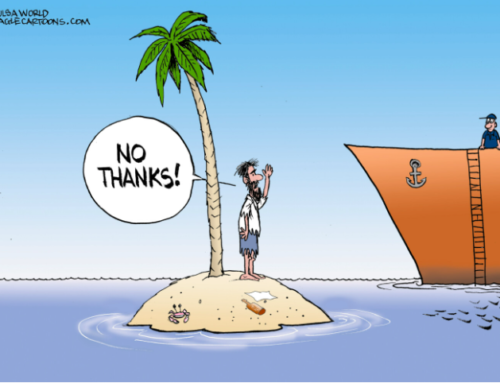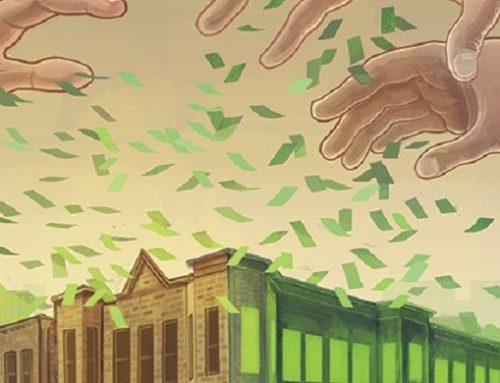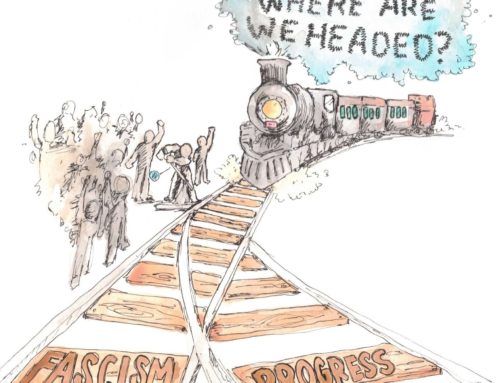Around the world, people are mobilizing, protesting, even revolting. The failings of capitalism and imperialism in its most recent form of neoliberal policies are clear – extreme inequality, austerity, privatization, exploitation and domination of people and planet. In Chile, Ecuador, Puerto Rico, Hong Kong and Haiti, record numbers of people have taken the streets to push back. Even the US is seeing more mobilizations.
People’s spontaneous resistance and mobilization are no doubt positive, but the development of these uprisings into organized people’s movements will depend on the ability to resist populism and opportunism.
But, what does that mean? Populism is the obscuring (intentional or not) of class interests. In every form of resistance, there will be varying and contending class interests and struggle. When we overlook this our efforts are funneled back into the dominant societal arrangement and classes we aim to resist (capitalists/imperialists). Opportunism stems from populism. It’s the easy path or a bandwagon approach to avoid struggle and tackling what’s dominant in a complex or contradictory moment.
Every political alternative and ideology is rooted in economic interests, which are in turn, reflections of class interests. Most of the political and ideological outlets we find serve the economic interests of various sectors of the capitalist class. This holds true in moments of popular resistance.
So, to get to the economic core, we have to wage struggle in the fields of politics and ideology. This requires us to demarcate from the general amalgam of “opposition” and to bring a position and perspective that allows organization and movement to move in a genuinely progressive direction – politics and ideology that resist capitalist interests. This requires struggle.
The Haitian workers movement Batay Ouvriye (BO) is an example we look to, and one we think the world can learn from. For over 25 years they have been constructing an independent and autonomous network of organizations that genuinely represent the people dominated and exploited by capitalism/imperialism. They organize textile workers in sweatshops, peasants in the countryside and neighborhood associations throughout the country.
BO wages democratic struggle to convince others of their perspective, to build organizations based on political unity. And, most importantly, they work to openly acknowledge and address their mistakes and failings, changing course when reality shows them their theory or approach was incorrect. Like any organization, or grouping of people, they mess up. There is struggle within the organization. But, consistently, Batay Ouvriye is trusted and taken seriously by the people. In a recent trip to Haiti, an OS member overheard the wife of a textile worker say, “First there is God. Second is Batay Ouvriye.”
As a country-wide uprising continues with a call to remove president Jovenel Moise, Batay Ouvriye demarcates from sectors of the broad opposition movement whose demands end with replacing one set of politicians with another. BO points out that under Presidents Moise, Martelly, and Preval workers, peasants and the poor have not seen any improvements in their quality of life. Textile workers continue to spend nearly all their wages getting to and from work, living on the brink of hunger and homelessness, while factory owners and multinational corporations make millions and billions in profits.
Investigation into Petro-Caribe corruption formally confirmed what was already an established practice made clear by the lack of social services and outright theft from social security programs – capital accumulation through the state, leaving the people with nothing.
In the US, we consistently consume narratives of “poor Haiti” and “they just need our help.” These perspectives protect the profit motives of multinational corporations which motivate imperialist domination, the destruction of local economies, imposition of debt, US occupation and political manipulation that have contributed to and benefit from corruption in Haiti. This formula of structural adjustment is not unique to Haiti. It is repeated throughout the world to bully countries into the “global economy” for the benefit of a handful of global monopolies.
October 28 – 29, 2019, members of the textile union SOTA-BO, affiliated with Batay Ouvriye called on textile workers and laborers from the beverage, food, hotels, commerce and service industries to bring their demands so their living conditions change.
As the general “opposition” calls to throw out Moise, BO has not forgotten the process through which this moment was conceived – the exploitation and domination of both local capitalists and foreign imperialists. To not demarcate from the general opposition would mean workers’ demand for an increased minimum wage would take a sidebar to simply ousting Moise. It would mean ignoring the fact that poor peasants in the countryside continue to have no basic rights or access to resources.
So, while BO and its affiliated organizations are in the streets with the general uprising, they make their intentions known. They will not be pacified simply by a new administration. They will not advocate for elections and a new candidate, because these political alternatives do not serve their economic interests. And, as they stand their ground, agitating and organizing, affirming and consolidating, more people continue to find unity with Batay Ouvriye.
Click here to read the leaflets BO distributed throughout September 2019 and into October.
How Does this Relate to us in the US?
As much as we like to think that our situation is different from those in dominated countries like Haiti, things are not looking so hot here either, thanks to the capitalist arrangement. We’re facing the makings of fascism in the US. Regulatory agencies, social programs, schools and democratic rights are being cut, eliminated, or privatized. Corruption and impeachment proceedings are everyday headlines. And while we retain access to an abundance of cheap goods, economic and social problems are blamed on immigrants whose countries we destroy to produce said cheap goods. The gap between rich and poor grows greater. Meanwhile, public lands are opened up for fossil fuel extraction as global temperatures and sea levels rise continue to rise. We are observing the global effects of capitalism in crisis.
In response, we see two main political alternatives, liberal and fascistic, representing different economic interests of the capitalist class. Liberal capitalists, claiming to be “progressive” simply because they are in opposition to conservatism, rally us to “vote them out,” offering “Medicare for All” and “The Green New Deal.” These proposals will open new industries and markets for capitalists, while insisting on a brand of capitalism that is allegedly humane. Meanwhile, the exploitation and class antagonisms that are fundamental to capitalism are brushed under the rug.
Supposed radicals tell us that our best option is to “vote for the lesser of two evils” or to form a “united front” with liberals and people whose end goal is to reform capitalism.
A truly progressive alternative and movement is one that pushes back against the dominating societal formation in a class-divided society. If we aim to actually resist capitalism and imperialism, we cannot accomplish this through capitalist elections. We cannot carve out a slightly better place for ourselves by reforming capitalism and ignore the exploitation of people in other countries that make our very existence possible. There are no shortcuts around the hard and sometimes uncomfortable work of taking a minority position.
We are not advocating sectarianism or competition. Instead, we are advocating for independence in all forms of organization and movement-building. We are advocating struggle for unity.
This requires demarcation. It’s the first step to building political unity… unity among different political currents and with the people to construct an organized mass movement. We must demarcate to unite, democratically convincing others to join us, to struggle with us.
So, you will never know where you or others stand or what is possible until you draw a line in the sand and ask, “Which side are you on?”
You’ll be surprised how many people are looking for someone or something that takes a genuine stand.
STAND UP. FIGHT BACK. ORGANIZE.
Get in touch:
onestruggle.southflorida@gmail.com
onestruggle.fiu@gmail.com
FB – @OneStruggle
IG – @SeedsofUnity
IG – @OneStruggle.FIU
Twitter – @OneStruggleSF





